Are you gearing up for a family reunion and need a bit of guidance on how to navigate the visa sponsorship process? It can feel overwhelming to ensure you have all the necessary documentation and information in place. But don't worry; we're here to break it down for you, making it easier to bring your loved ones together from afar. Dive into our comprehensive guide to learn everything you need about drafting that all-important sponsorship letter!
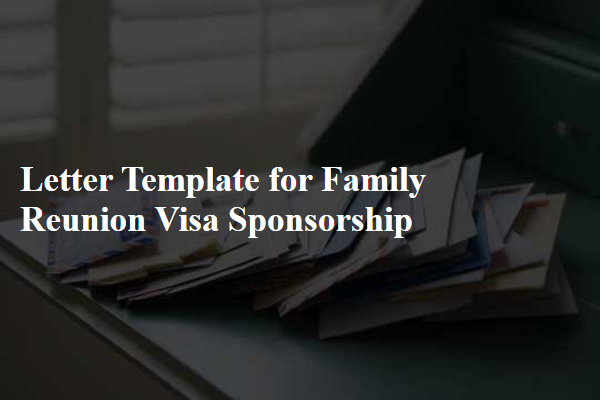
Applicant's Personal Information
The family reunion visa sponsorship process requires detailed applicant personal information to facilitate a thorough review. Essential details include the applicant's full name, as listed on the passport, which should match government records for identification purposes. Date of birth, typically formatted as day-month-year, provides crucial age verification. The country of birth and citizenship must be specified, especially if dual nationality exists, to determine applicable visa regulations. Current residential address, including city and postal code, is necessary for communication and tracking of the application process. The applicant should also include their relationship to the sponsor, outlining familial ties clearly, whether as a spouse, child, sibling, or parent. Finally, any previous visa applications or immigration history must be noted to provide context for eligibility assessment.
Sponsor's Personal Details
In the process of a family reunion visa sponsorship, the sponsor's personal details play a crucial role in establishing eligibility and support for the applicant. Key elements include the full name of the sponsor, their date of birth, and their nationality, which should be clearly defined to ascertain their legal status. Additionally, the sponsor's address, including city, state, and postal code, provides a residential anchor for the application. Employment details, such as job title, employer's name, and length of employment, signify financial stability essential for supporting family members during their stay. Lastly, the sponsor's identification documents, such as a passport number and social security number (if applicable), validate their identity and ensure compliance with immigration regulations. Detailed and accurate personal information contributes to the successful processing of the visa application.
Relationship Explanation
Visa sponsorship for family reunions involves clear relationship explanations, showcasing genuine connections. For instance, a son may request sponsorship from his father, emphasizing their bond through shared experiences and history. Documenting family ties requires evidence such as birth certificates, photographs from family gatherings, or even messages that highlight ongoing communication. Legal documents like marriage certificates can also clarify relationships in cases of in-laws. Overall, supporting documents strengthen the case, helping immigration authorities understand the depth of familial ties, ultimately easing the visa process.
Financial Support Assurance
A family reunion visa sponsorship requires clear financial support assurance to demonstrate the ability to support relatives during their stay. The sponsor's financial status should include monthly income details, such as salary figures or verification of employment, typically sourced from a reputable employer. The minimum required annual income often aligns with local government guidelines, which can vary significantly by country. Additional documentation, such as bank statements, tax returns, or assets, may also strengthen the financial claim. For instances such as the upcoming United States Family Reunification Initiative (set to commence in January 2024), sponsors may need to provide comprehensive proof of financial stability to ensure that relatives will not rely on public funds during their visit.
Compliance with Immigration Regulations
Visa sponsorship for a family reunion involves adhering to specific immigration regulations. Understanding eligibility requirements is crucial, such as demonstrating significant family ties, typically through birth certificates or marriage licenses. The financial ability to support the sponsored family members is essential, typically by providing pay stubs or bank statements. Relevant documentation must be submitted to the immigration office, including Form I-130 for relatives, along with proof of the sponsor's legal status in the host country, whether a permanent resident or a citizen. Timely application processing is also vital, as delays can arise during peak influx periods, influencing travel plans for relatives seeking to join family in the host nation. Compliance with all stipulated deadlines and keeping abreast of any changes in immigration policy ensure a smooth sponsorship process.
Letter Template For Family Reunion Visa Sponsorship Samples
Letter template of family reunion visa sponsorship for immediate relatives.
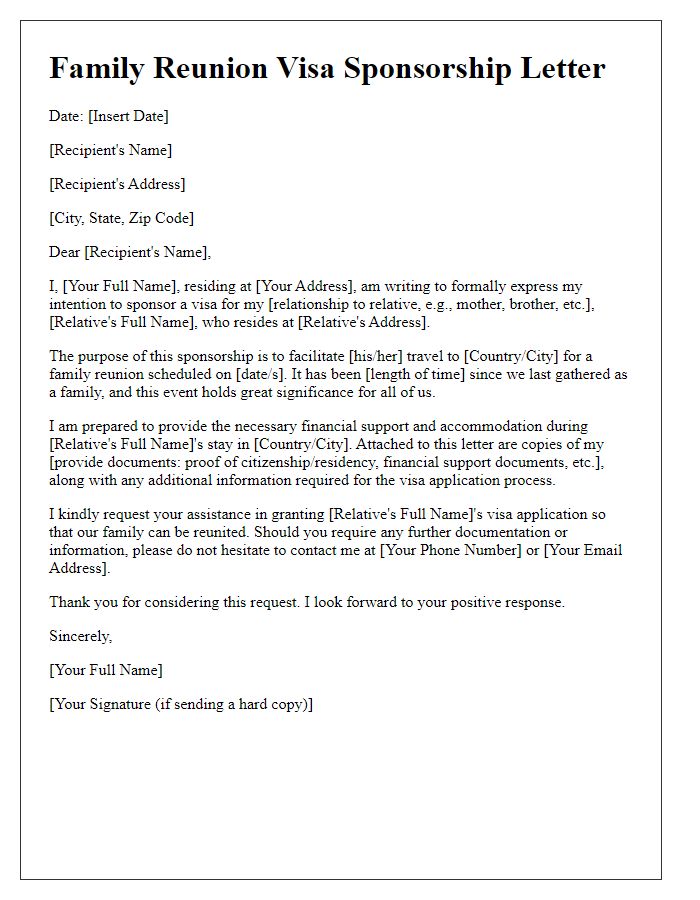
Letter template of family reunion visa sponsorship for extended family members.
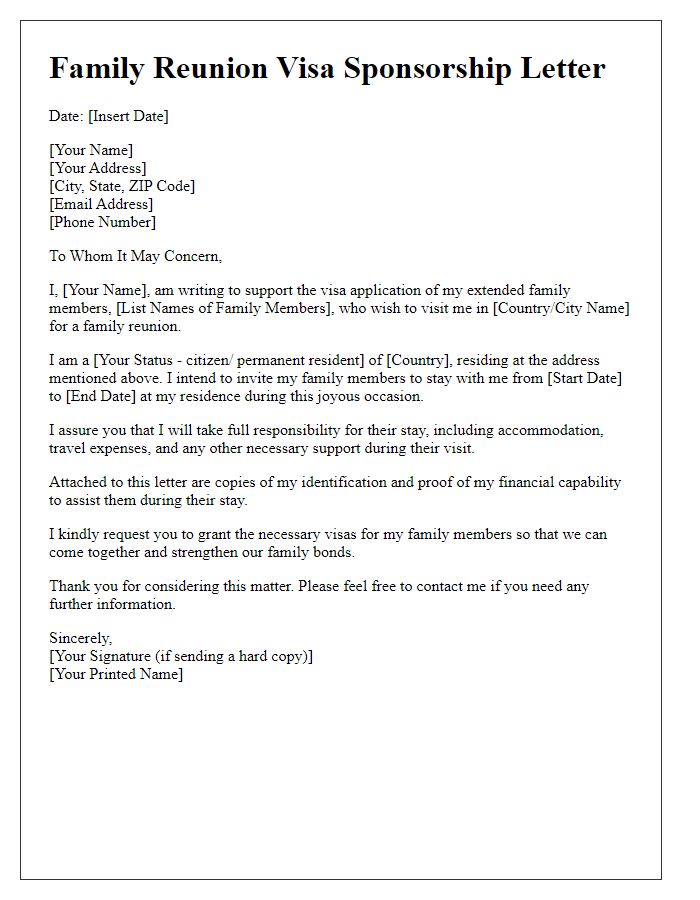
Letter template of family reunion visa sponsorship for spouse and children.
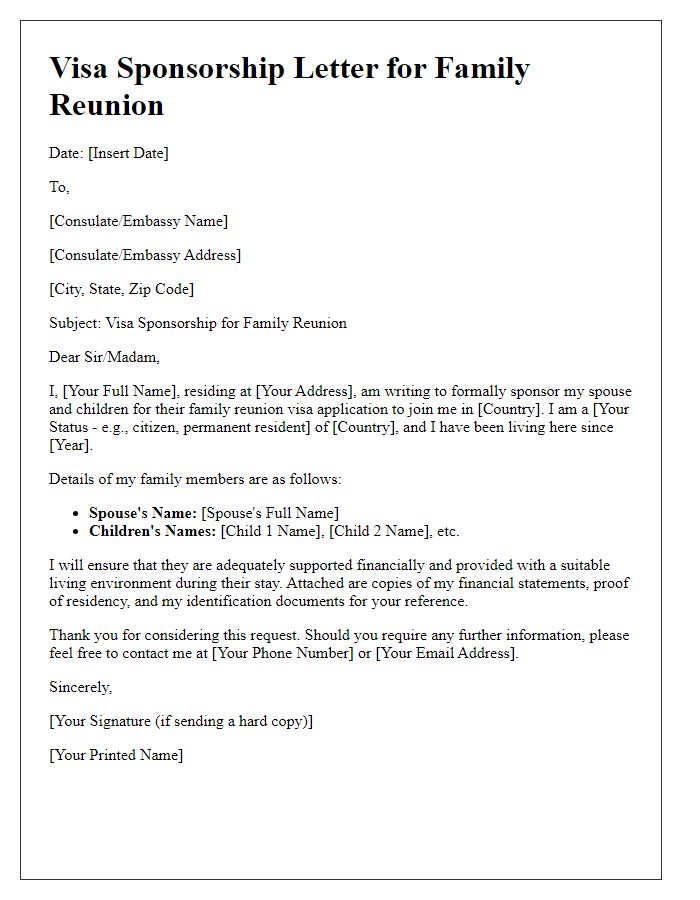
Letter template of family reunion visa sponsorship for adopted children.
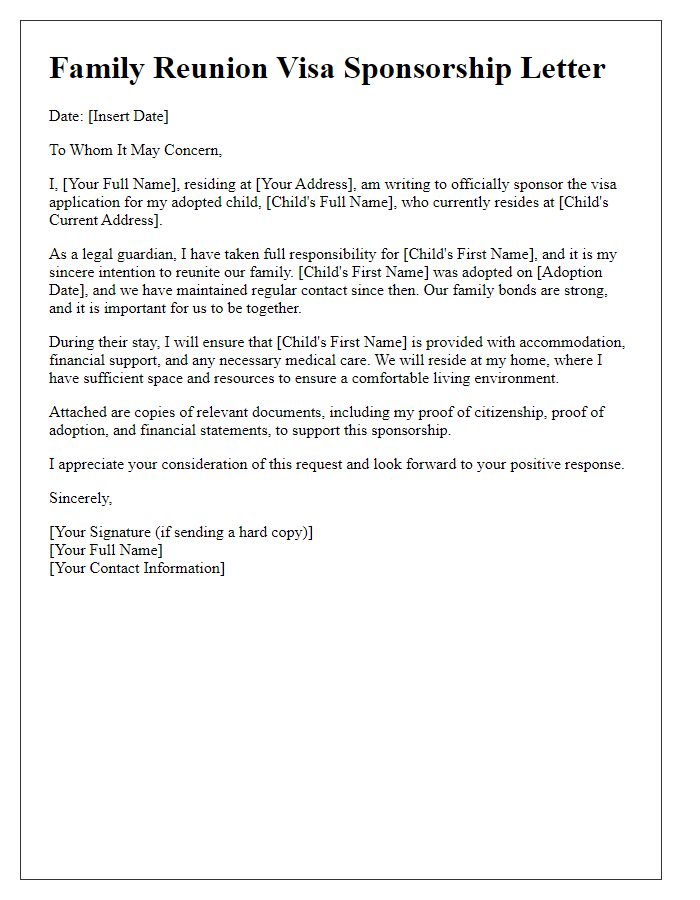
Letter template of family reunion visa sponsorship for unmarried partners.
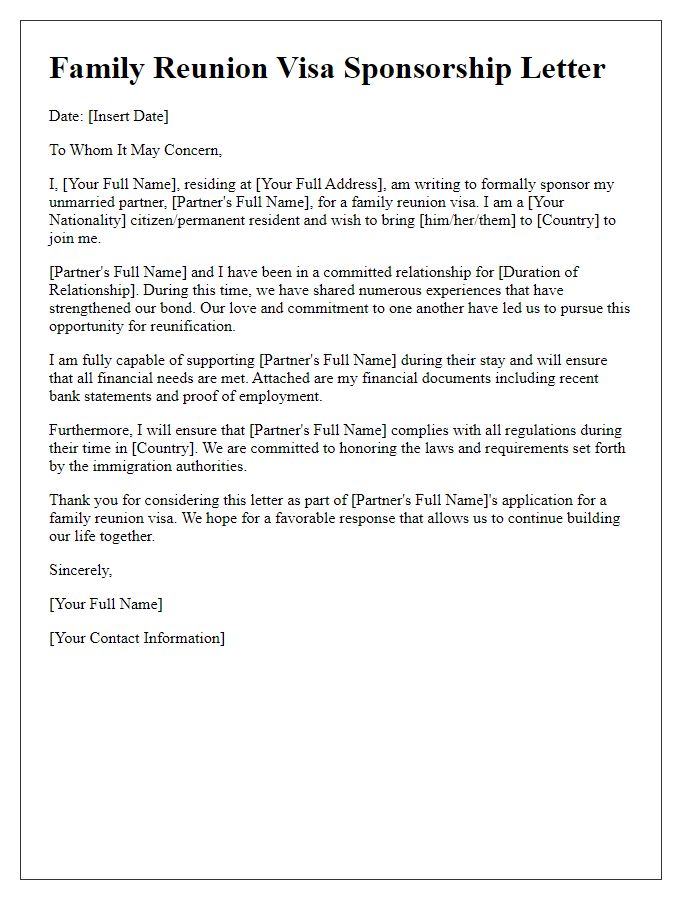

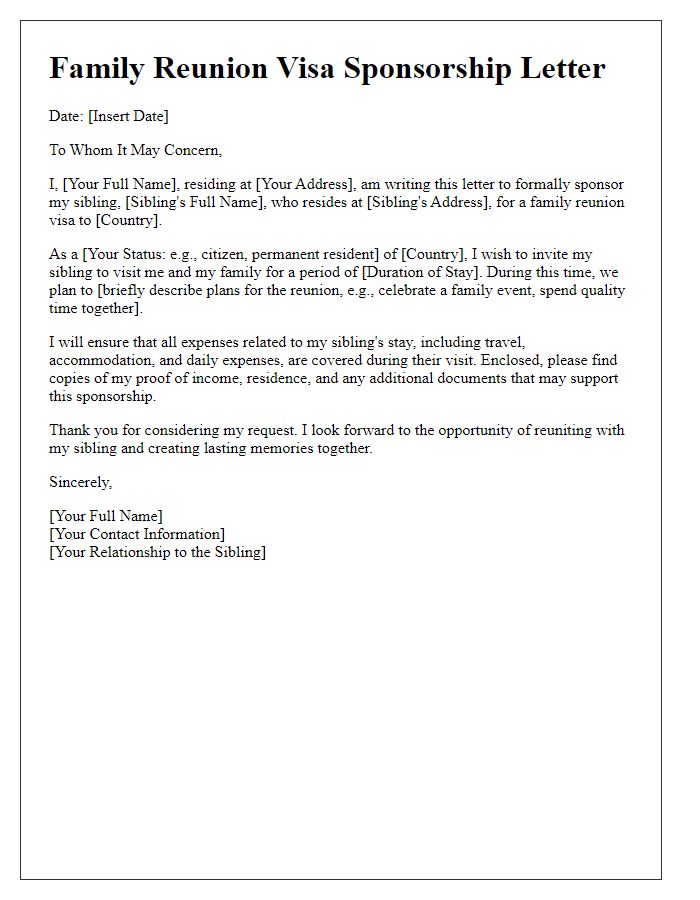
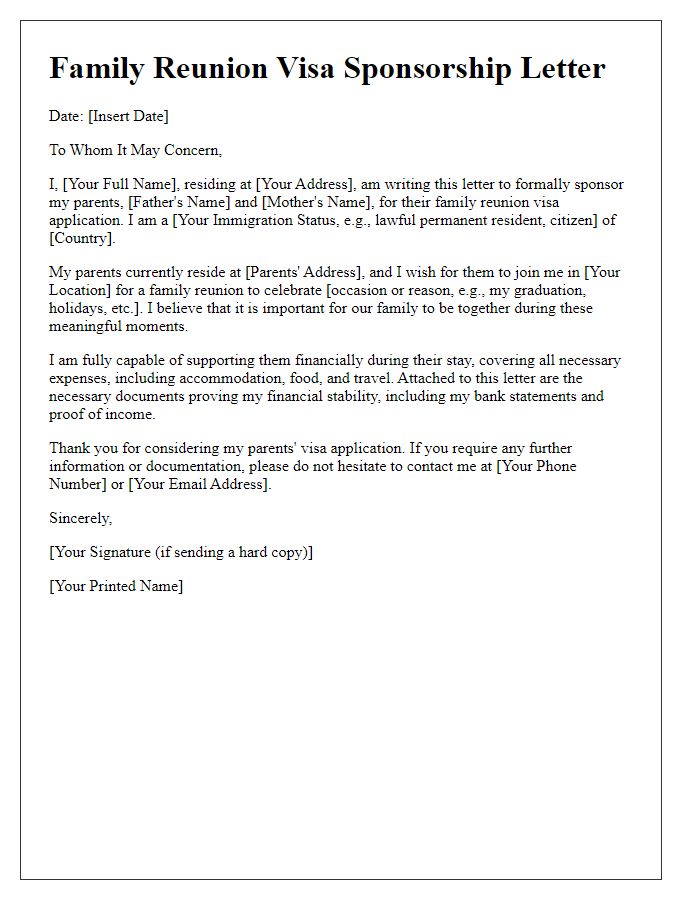
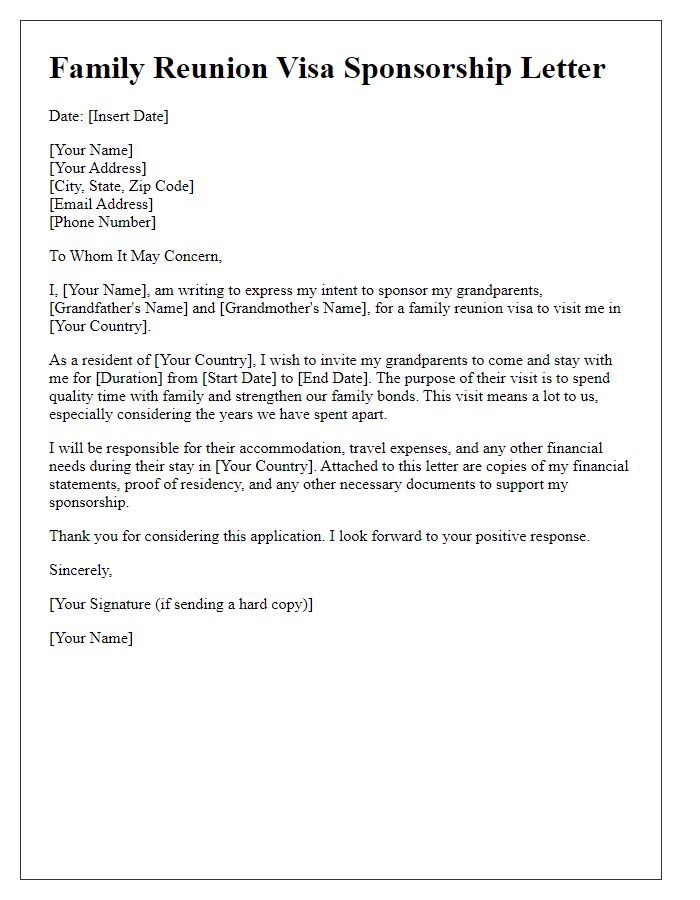
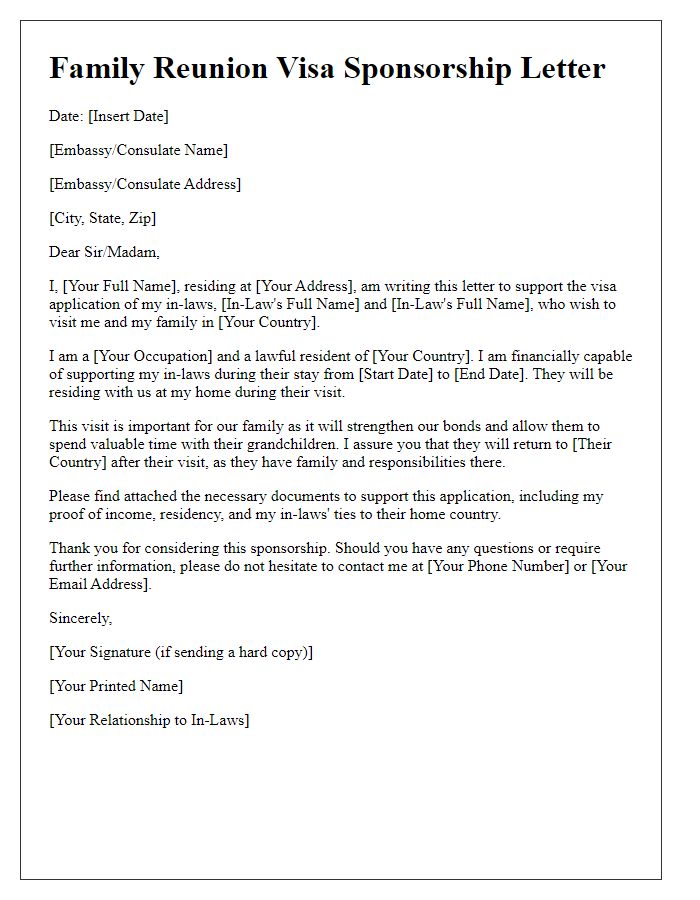
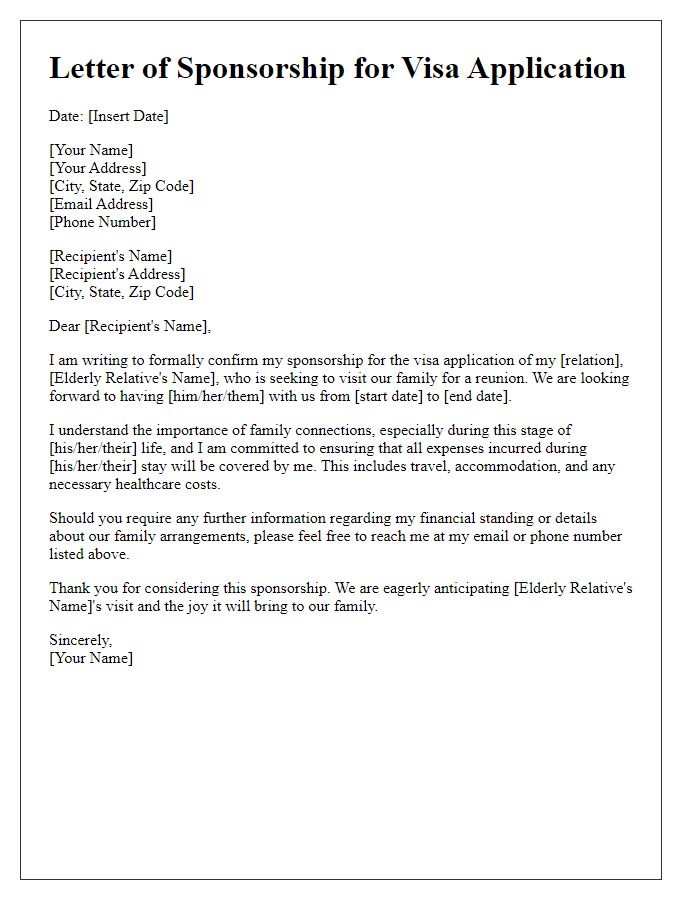


Comments